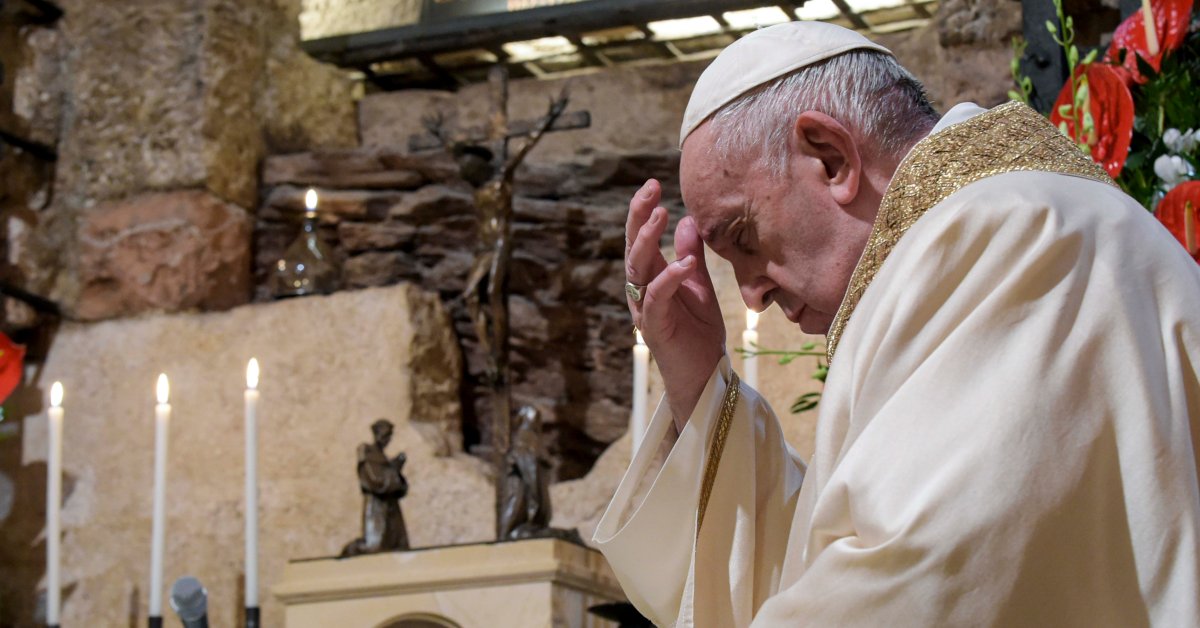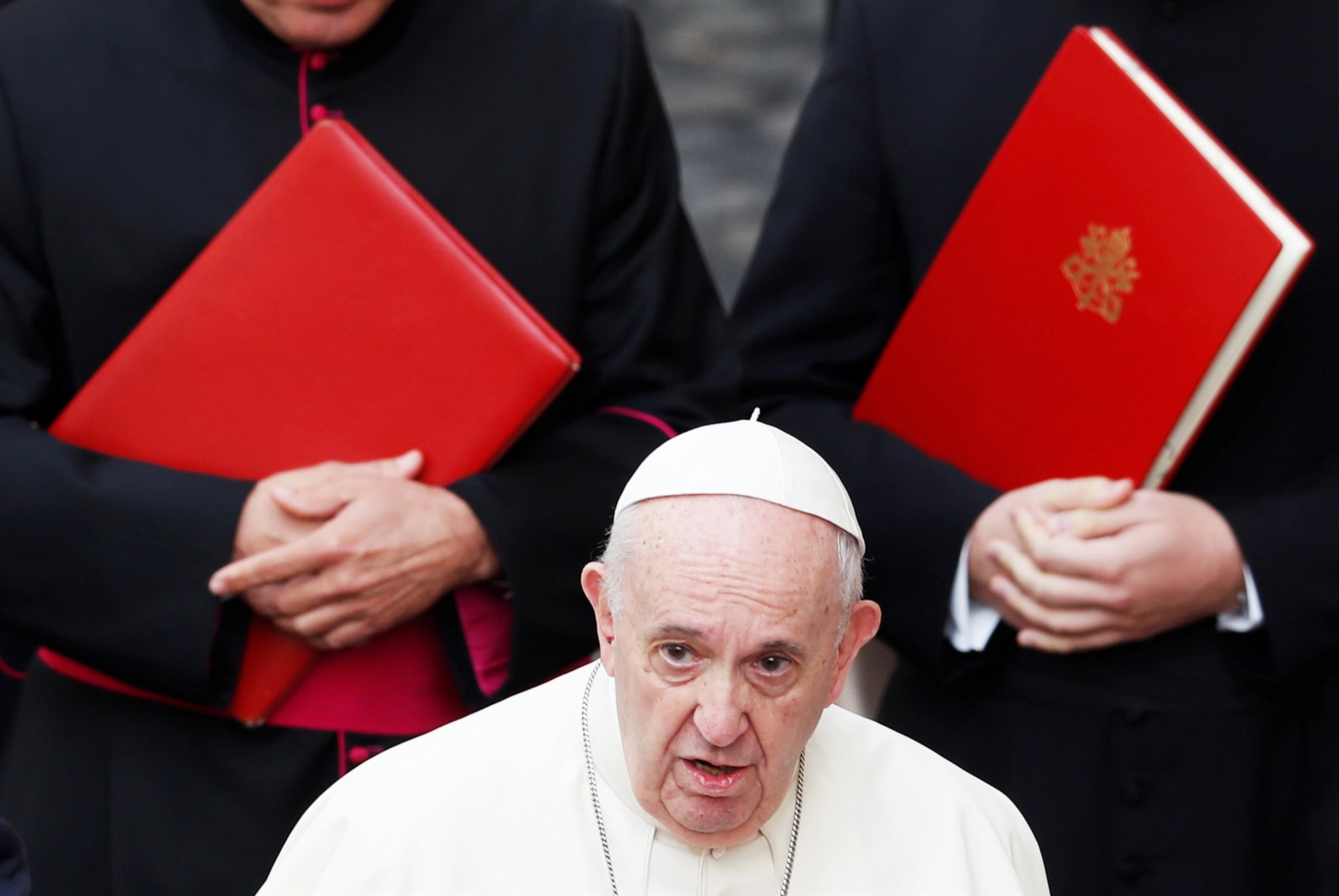Pope Francis says the coronavirus pandemic has proven that the "magic theories" of market capitalism have failed and that the world needs a new type of politics that promotes dialogue and solidarity and rejects war at all costs.
Francis on Sunday laid out his vision for a post-COVID world by uniting the core elements of his social teachings into a new encyclical aimed at inspiring a revived sense of the human family. The document draws its inspiration from the teachings of St. Francis and the pope's previous preaching on the injustices of the global economy and its destruction of the planet and pairs them with his call for greater human solidarity to confront the "dark clouds over a closed world."
"We call upon ourselves, upon the leaders of the world as well as the architects of international policy and world economy, to work strenuously to spread the culture of tolerance and of living together in peace; to intervene at the earliest opportunity to stop the shedding of innocent blood and bring an end to wars, conflicts, environmental decay and the moral and cultural decline that the world is presently experiencing," Francis wrote.

Pope Francis says market capitalism has failed. /AP
Pope Francis says market capitalism has failed. /AP
"We likewise affirm that major political crises, situations of injustice and lack of equitable distribution of natural resources – which only a rich minority benefit from, to the detriment of the majority of the peoples of the earth – have generated, and continue to generate, vast numbers of poor, infirm and deceased persons. This leads to catastrophic crises that various countries have fallen victim to despite their natural resources and the resourcefulness of young people which characterize these nations. In the face of such crises that result in the deaths of millions of children – wasted away from poverty and hunger – there is an unacceptable silence on the international level."
In the document, Francis rejected the concept of an absolute right to property for individuals, stressing instead the "social purpose" and common good that must come from sharing the Earth's resources. He repeated his criticism of the perverse global economic system, which he said consistently keeps the poor on the margins while enriching the few.
Francis also rejected "trickle-down" economic theory, saying it simply doesn't achieve what it claims.
"Neo-liberalism simply reproduces itself by resorting to magic theories of 'spillover' or 'trickle' – without using the name – as the only solution to societal problems," he wrote. "There is little appreciation of the fact that the alleged spillover does not resolve the inequality that gives rise to new forms of violence threatening the fabric of society."

Pope Francis has declined U.S. Secretary of State Mike Pompeo's request for an audience before the U.S. presidential election. /Reuters
Pope Francis has declined U.S. Secretary of State Mike Pompeo's request for an audience before the U.S. presidential election. /Reuters
"There is little doubt that these three documents will be considered the teaching backbone of the Francis era," Francis' English-language biographer, Austen Ivereigh, wrote in the Commonweal magazine.
Francis made sure the text had wide circulation, printing the encyclical in the Vatican newspaper L'Osservatore Romano and distributing it free in St. Peter's Square on Sunday to mark the resumption of printed editions following a hiatus during the COVID-19 lockdown.
He enshrined in the encyclical his previous rejection of both the nuclear arms race and the death penalty, which he said was "inadmissible" in all cases.
Francis' call for greater "human fraternity," particularly to promote peace, is derived from his 2019 joint appeal with the grand imam of Egypt's Al-Azhar, the revered 1,000-year-old seat of Sunni Islam. Their "Human Fraternity" document established the relationship between Catholics and Muslims as brothers, with a common mission to promote peace.
The pope's decision to sign the document in Assisi, where he traveled on Saturday, and release it on the saint's feast day is yet further evidence of the outsized influence St. Francis has had on the papacy of the Jesuit pope.
Francis is the first pope to name himself after the mendicant friar, who renounced a wealthy, dissolute lifestyle to embrace a life of poverty and service to the poor.
(With inputs from agencies)